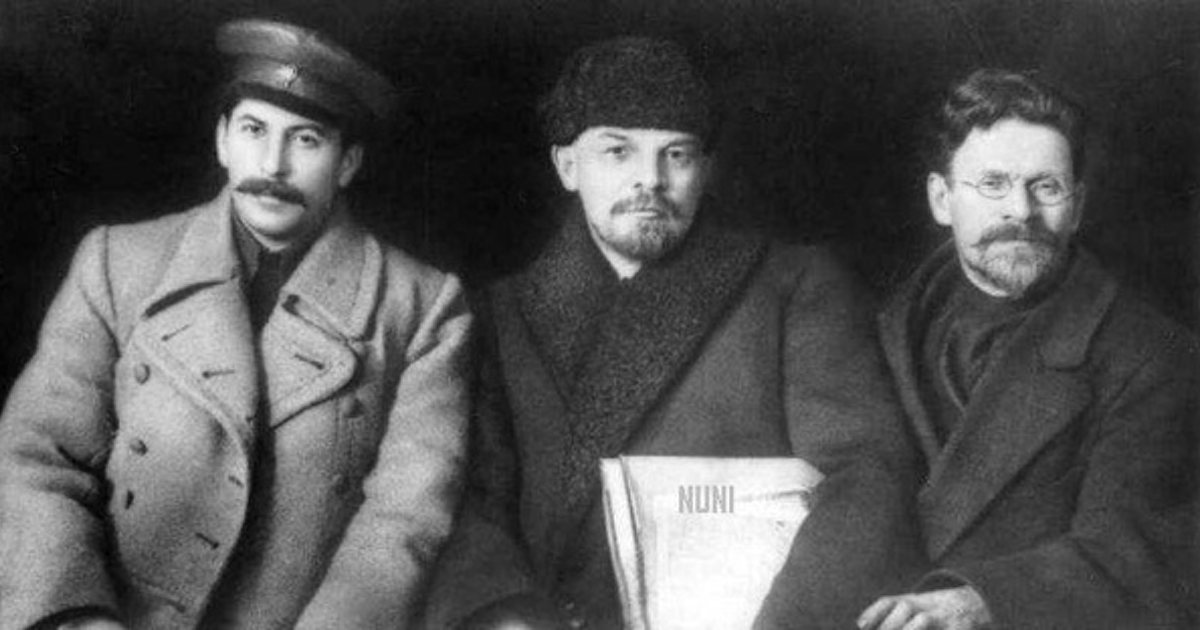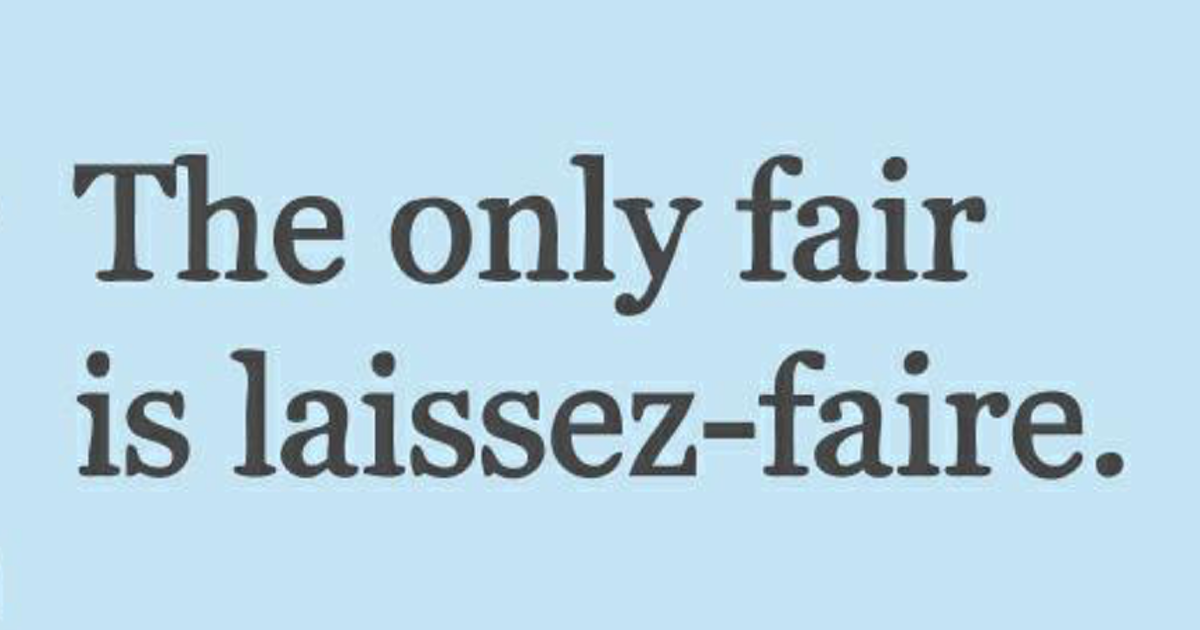|
By Liberty Report Staff
In 1944, one of America's finest journalists, named John T. Flynn, published a book entitled "As We Go Marching." (You can download a free e-book here.) Keep in mind that the book was published during World War II. Flynn could see the writing on the wall. A massive 'Pentagon' was recently built, and he could tell that a new America would emerge from this war, and it wouldn't be an America devoted to the ideas of peace and non-interventionism. It would be a war machine. Flynn wrote: “The great and glamorous industry is here—the industry of militarism." The American Empire per se began in 1898, when the U.S. conquered the Philippines, Cuba, Guam, Hawaii and Puerto Rico, basically in one shot. Then one of the worst decisions imaginable was made in 1917, when Woodrow Wilson thrust America into the European conflict, known as World War I. The war complex in America got its first real taste of how government can expand in all directions, and increase its powers exponentially during a major war. But it would be at the end of World War II that the military-industrial-complex and American surveillance state to monitor all Americans would get shackled onto the former land of the free. Flynn wrote: We have managed to acquire bases all over the world…There is no part of the world where trouble can break out where we do not have bases of some sort... Remember, this is 1944. And then Flynn made the most prescient statement: ...there must remain when the war is over a continuing argument in the hands of the imperialists for a vast naval establishment and a huge army ready to attack anywhere or to resist an attack from all the enemies we shall be obliged to have. Because always the most powerful argument for a huge army maintained for economic reasons is that we have enemies. We must have enemies. Flynn hit the bulls-eye. We must have enemies. After World War II, the U.S. went on a tirade of almost constant war ... Vietnam ... North Korea ... Latin America ... Iraq .... Afghanistan ....... and numerous countries in between and after. All of it leading to (and including) the present day. Some very bad decisions were made at the turn of the 1900's. Some good decisions will have to be made in the future.
A corrupt monetary system must infuse corruption throughout the entire society. America's monetary system run by the Federal Reserve, which is a Congressionally-created monopoly that has the power to create money out-of-thin-air, is the poster boy of institutionalized corruption. Sound money is the only way out. Ron Paul discusses on today's Liberty Report!
By Liberty Report Staff
Socialists do not all want the same thing. They all advocate the use of violent force against individual property and individual liberty...that much is the same. But how, when, and where the violent force is doled out, and how the stolen loot is divided up is a whole different ballgame. Each Socialist wants his/her own delusion to be imposed on everyone else. That's job number one. Every other Socialist can be a fellow traveler and come along for the ride, but in the end, they too will have to bow down. The great Ludwig von Mises pointed out: "The worst thing that can happen to a socialist is to have his country ruled by socialists who are not his friends." One need only look to history to see how vicious Socialists can be to their own ilk. In the U.S.S.R, the Stalinists and Trotskyists ended up being mortal enemies. The Nazis were enemies of the Soviets.....yet they were all Socialists. Remember that "Nazi" stood for The National Socialist Party and the U.S.S.R. stood for the Union of Soviet Socialist Republics. All the different types of Socialists are nothing more than just rival gangs. They all tap into (or generate) the destructive emotion of envy. The heartbeat of Socialism is envy. The gang that is best able to capitalize on it and garner the most believers, "wins." But the "winner" now must contend with all the rival Socialists. Why? Because now the rival Socialists are envious that they're not the ones on top dictating how violence will be doled out. Why do you think Socialists are always saying: "Oh no, the Soviet Union was not real Socialism." It's never real Socialism because they all have their own concocted fantasies on how violent force should be used. Advocates of Individual Liberty present a way out of this gang warfare known as Socialism. In a free society, no one has a right to initiate aggressive force against anyone else. Force is for self-defense only. You keep your hands off me and my stuff, and I keep my hands off you and your stuff. These ideas of Liberty are kryptonite for Socialists, since their whole philosophy is based on the use of aggressive force. Bottom line: Don't be fooled into thinking that Socialists are one big happy family. Its gang warfare that literally never ends.....as long as they have believers.
This week marks four years of Saudi bombing in Yemen. US participation in the destruction of Yemen began under Obama, but sadly President Trump has done nothing to end the slaughter. While hospitals are bombed and two-thirds of the population faces starvation, US lectures to the rest of the world about upholding human rights are seen as a hypocritical farce.
A Russian military transport arrived in Venezuela this past week bringing tons of aid and also nearly 100 Russian military advisors. Reportedly, this included cybersecurity experts. Moscow claimed this was pre-planned and related to a nearly 20 year old cooperation agreement with Caracas. US neocons looking for regime change are claiming it is a new Cuban Missile Crisis. Who's right? Is Venezuela about to escalate out of control?
By Chris Rossini
[This article is an addendum to the article: To Hate Profits...Is To Not Understand Profits] It's human nature to constantly seek profits, while at the same time trying to avoid losses. Every decision that we make, and every action that we take, is intended to improve our life from our perspective. We're constantly trading our current set of circumstances, for another more desired set of circumstances. The cost of each action requires (at a minimum) our limited time, and any energy/labor that we have available to expend. The size of our desires are only a matter of scale. We can have an annoying itch, that requires just a few seconds of time and energy to scratch and relieve, or we can have a desire to express our talents and skills to their fullest and become wealthy as a result. The latter requires much more than just a few seconds of our time. It can take decades to master your craft, and many thousands of hours of expended energy and labor. Regardless of the scale of our desires, the principles involved in achieving them are exactly the same. When we succeed in achieving our desires, we experience a psychological profit. When we fail, we experience a psychological loss. Losses are a result of our inherent ignorance, and lack of understanding the truth. If you try to scratch an itch by using the palm of your hand, you're going to be disappointed. The itch won't go away. You'll waste your time and energy by doing so. But the moment that you use your fingernail, you succeed, and feel the psychological profit as a result. Since we have no choice as human individuals but to seek profits and avoid losses, we might as well focus on the BIG profits, right? Scratching an itch may be profitable, but the satisfaction is fleeting at best. How can we experience more lasting satisfactions? And can we multiply those lasting satisfactions? Where are the BIG profits located? There isn't a single or 'right' answer to these questions. BIG potential profits vary from one person to the next. We all have our own individual desires. So we each have to identify and locate where our personal BIG profits are located. Fortunately, the identification is the easy part. Just look for the greatest discomforts in your life. Look for the things that you'd rather not do. Look for the hard stuff....the stuff that hangs over your head day-after-day. You know you have to do it, but you don't want to, so you don't. That's where the BIG profits are hidden. That's where you'll find the biggest satisfactions. The natural tendency is to avoid these things, and instead focus on scratching little itches all day long. The tendency is to stay busy and 'get stuff done,' but it's usually just run-of-the-mill stuff. But the greater the discomfort that you relieve, the greater the psychological profit that you'll experience and the greater the burden that will be lifted off your shoulders. So, the way to experience and multiply BIG profits, is to identify the things that you have to do that cause you the greatest discomfort. Then do them! Now let's take this concept and apply it to monetary profits, since they operate on the same exact principles. Let's take the following scenario: A festival is being planned for thousands of 21-year olds. It's going to take place out in the middle of a desert. The logistics are terrible, but these kids are pumped. They don't care. The festival planner starts soliciting vendors of food and water for the event, which just so happens to be the business that you're in. Most vendors go through their cost/profit analysis and they pass. It's too much of a hassle with transportation, keeping everything cold, etc...etc.... The festival planner calls you, and same exact things that ran through your competitors minds run through yours as well. You really would rather not be bothered with the headaches that this event involves. You already have plenty of run-of-the-mill customers who are easy to supply. But, because you've switched your individual mentality to focusing on satisfying BIG discomforts, you don't hang up on the festival planner just yet. You put some serious thought into all the contacts that you have and the resources that are at your disposal. Your competitors didn't even get that far. They said "No" immediately after considering the difficulty. But you come to the conclusion that you can make it work. You'll take the risk, but you're going to propose that the festival planner pay you handsomely for taking on that risk. The festival planner doesn't blink an eye. He takes your offer before you even finish your sentence. No one else would do it! The planner couldn't be happier. The whole thing turns out to be a huge success and as a bonus, thousands of kids follow your company's Instagram account while at the festival. You kept everyone from starving and dehydrating. There was a HUGE discomfort that you and your company satisfied, and you reaped HUGE profits as a result. There can be nothing better than the free market! Entrepreneurs using scarce resources to satisfy the most urgent wants of consumers. The more urgent the wants, the bigger the profits (until competition comes in to drive the profits down with an increase in supply). Consumers are showered with what they want most. But here's the kicker... You get home from the successful event to check over the news, and you notice that armchair warriors have started to smear your company: XYZ Company Exploits Kids At Desert Festival: Greedy Profits For Water & Food You did what no one else would (or possibly could) so the armchair warriors are more of an annoyance than anything. After all, they're playing their part too --- Ignorance capitalizing on ignorance. But the kids at the event couldn't have been happier, and the festival planner has already booked you for next year's event. You've multiplied the occurrence of BIG profits by tackling the greatest discomforts.
By Lawrence W. Reed
There are two basic prisms through which we can see, study, and prescribe for human society: individualism and collectivism. These worldviews are as different as night and day, and they create a great divide in the social sciences. That’s because the perspective from which you see the world will set your thinking down one intellectual path or another. No Two Alike I think of it as the difference between snowstorms and snowflakes. A collectivist sees humanity as a snowstorm, and that’s as up-close as he gets if he’s consistent. An individualist sees the storm, too, but is immediately drawn to the uniqueness of each snowflake that composes it. The distinction is fraught with profound implications. No two snowstorms are alike, but a far more amazing fact is that no two snowflakes are identical either — at least so far as painstaking research has indicated. Wilson Alwyn Bentley of Jericho, Vermont, one of the first known snowflake photographers, developed a process in 1885 for capturing them on black velvet before they melted. He snapped pictures of about 5,000 of them and never found two that were the same — nor has anyone else ever since. Scientists believe that changes in humidity, temperature, and other conditions extant as flakes form and fall make it highly unlikely that any one flake has ever been precisely duplicated. (Ironically, Bentley died of pneumonia in 1931 after walking six miles in a blizzard. Lesson: One flake may be harmless, but a lot of them can be deadly). Contemplate this long enough and you may never see a snowstorm (or humanity) the same way again. Dr. Anne Bradley is Vice President of Economic Initiatives at the Institute for Faith, Work and Economics. At a recent FEE seminar in Naples, Florida, she explained matters this way: When we look at a snowstorm from a distance, it looks like indistinguishable white dots peppering the sky, one blending into the next. When we get an up-close glimpse, we see how intricate, beautiful, and dissimilar each and every snowflake is. This is helpful when thinking about humans. From a distance, a large crowd of people might look the same, and it’s true that we possess many similar characteristics. But we know that a more focused inspection brings us nearer to the true nature of what we’re looking at. It reveals that each of us bears a unique set of skills, talents, ambitions, traits, and propensities unmatched anywhere on the planet.
This uniqueness is critical when we make policy decisions and offer prescriptions for society as a whole; for even though we each look the same in certain respects, we are actually so different, one to the next, that our sameness can only be a secondary consideration.
Primary Uniqueness The late Roger J. Williams, author of You Are Extra-Ordinary and Free and Unequal: The Biological Basis of Individual Liberty (as well as several articles in The Freeman), was a noted biochemistry professor at the University of Texas in Austin. He argued that fingerprints are but one of endless biological characteristics unique to each of us, including the contours and operation of our brains, nerve receptors, and circulatory systems. These facts offer a biological basis for the many other differences between one person and the next. Einstein, he noted, was an extremely precocious student of mathematics, but he learned language so slowly that his parents were concerned about his learning to talk. Williams summed it up well more than 40 years ago when he observed, “Our individuality is as inescapable as our humanity. If we are to plan for people, we must plan for individuals, because that’s the only kind of people there are.” Proceeding one step further, we must recognize that only individuals plan. When collectives are said to “plan” (e.g., “The nation plans to go to war”), it always reduces to certain specific, identifiable individuals making plans for other individuals. The only good answer to the collectivist question, “What does America eat for breakfast?” is this: “Nothing. However, about 315 million individual Americans often eat breakfast. Many of them sometimes skip it, and on any given day, there are 315 million distinct answers to this question.” Collectivist thinking is simply not very deep or thorough. Collectivists see the world the way Mr. Magoo did — as one big blur. But unlike Mr. Magoo, they’re not funny. They homogenize people in a communal blender, sacrificing the discrete features that make us who we are. The collectivist “it takes a village” mentality assigns thoughts and opinions to amorphous groups, when, in fact, only particular people hold thoughts and opinions. Read the rest of this article at the Foundation for Economic Education.
President Trump's point man for Syria has said that the defeat of ISIS will not result in a US withdrawal from its illegal occupation of Syrian territory. In fact, he said, the US would continue to support the anti-Assad "vetted Syrian opposition" fighters.
By Ron Paul
The recently-proposed Green New Deal is proof that climate change is for progressive Democrats what terrorism is for neoconservative Republicans: a ready-made excuse to expand government and curtail liberty. This radical plan would authorize the US government to seize control of major sectors of the US economy, phase out gasoline-fueled cars, make buildings “energy efficient,” and even replace air travel with rail travel. Supporters of the Green New Deal claim that the science regarding the risk of climate change is “settled.” However, the science is far from settled. Many of the claims regarding climate change have been debunked. Some supporters of policies like the Green New Deal have actually supported criminalizing dissent from the so-called “settled” science of climate change. This reveals the authoritarianism of some people demanding Americans give up real liberty and prosperity because of phantom fears of impending environmental disaster. Like all forms of socialism, the Green New Deal suffers from what Ludwig von Mises identified as the “calculation problem.” Knowledge of the most efficient use of resources is conveyed by prices set in a free market. Prices reflect individuals’ subjective preferences regarding the best use of resources. When government uses force to remove resources from the marketplace, it makes it impossible for the price system to function, leaving government officials and private citizens unable to determine the most efficient use of resources. That is why every attempt at government management of the economy inevitably reduces the people’s standard of living. Congresswoman Alexandria Ocasio-Cortez has dismissed concerns regarding the almost 100 trillion dollars ten-year cost of implementing the Green New Deal by suggesting that Congress simply make the Federal Reserve pay for it by creating new money. Rep. Ocasio-Cortez’s claim is rooted in Modern Monetary Theory. This theory states that, when government controls the currency, it need not worry about running up large debt for welfare and war; it can have the central bank print more money to pay for more government. Modern Monetary Theory is not modern. The Federal Reserve has facilitated the growth of government by printing money since its creation. It is no coincidence the birth of the Federal Reserve was immediately followed by the rise of the welfare-warfare state. Whether done to monetize the federal debt or to jump-start economic growth, the Federal Reserve’s creation of new money harms the economy. In fact, Fed-induced distortions, caused by actions including money creation and interest rate manipulation, are the root cause of the boom-and-bust cycle that plagues the American economy. The Green New Deal would, in addition to its other negative impacts, hasten and deepen the inevitable Federal Reserve-caused economic crisis facing America. It would also increase the hidden and regressive inflation tax. Ironically, the Green New Deal also would likely damage the environment. History shows that the most effective way to protect the environment is with a free-market economy that respects property rights. Therefore, those concerned with protecting the environment should support the free market, along with a legal system that holds private property owners accountable when their actions damage the environment or harm other individuals or their property. |
Archives
July 2024
|






 RSS Feed
RSS Feed



